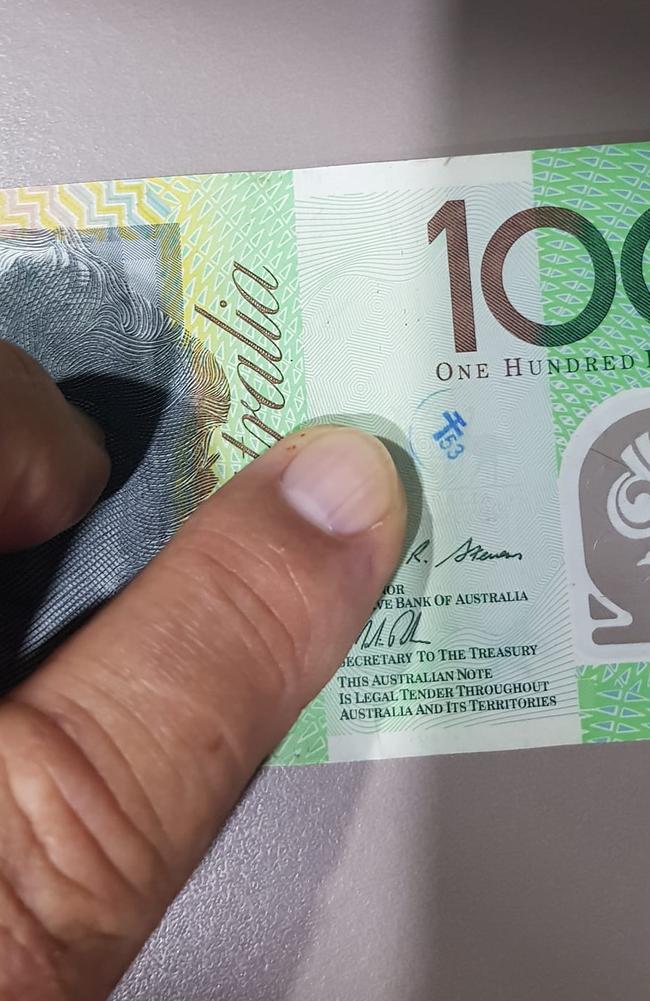Travellers warned as tiny detail causes $100 note to be rejected
Australian travellers are being warned to only take their most pristine notes to be exchanged in Asia.
Australian travellers are being warned to only take their most pristine notes to be exchanged in Asia after one man’s Aussie currency was rejected for a tiny mark.
The traveller took to the Facebook page ‘Cash is King’ – which is fighting against a cashless society – to ask why his $100 note was rejected in Thailand when trying to exchange it for Thai Baht.
The note had a small blue stamp of a symbol and the number 53.
Another traveller said it was “pretty standard” in Thailand for money with imperfections to be rejected.
“You have to be very careful in Thailand – they will not accept if there is any writing on the note or if it is slightly torn … sometimes even too crumpled they won’t accept,” he wrote.
The man said his Thai girlfriend always ensures all their notes are perfect before visiting from Australia.

“They will literally only take new looking notes, they check every single note,” agreed someone else.
“Only clean, undamaged, new notes will be exchanged. Always check the notes in Australia before you leave,” warned another.
In an ironic twist, it is understood the marking on the note is a chop mark used by money changers to signal a legitimate note.
The stamps can be different symbols and colours depending on where it was added.
American coin dealer Ben Tseytlin, who runs Coin Exchange in New York, explained in a blog on his website that the practice is common in Asia, where counterfeit cash is a problem.
“Many currency collectors who come across $100 bills with chop marks choose to hold onto them, which might prove fruitful in the future,” he said.
“If they know the origin of the mark, and that particular bill eventually goes out of circulation, it could indeed carry a premium. But the reverse is also true.
“Many currency collectors will tell you that any stamp or mark placed on the bill which did not come from the American government will actually ruin, rather than enhance its value.”
Unlike paper bills in the US, Australian notes are printed on a type of plastic.
Many travellers advised the Aussie tourist in Thailand to try scrubbing the blue stamp on the $100 note using hand sanitiser to get it off.
Bespoke tour operator InsideAsia Tours told news.com.au it is not uncommon for currency exchange houses to reject bills that don’t meet their standards, and some are more rigorous than others.
“The general rule of thumb when exchanging currency in-destination is that cash should have no defects such as tears, writing, stamps etc.” InsideAsia spokeswoman Elise Hodgson said.
“InsideAsia recommends that travellers check over their currency before departing, to ensure they only take notes in good condition overseas. If you find your notes have any imperfections, it’s advised that you visit your local bank to avoid running into complications abroad.”
She added that it is also important to ensure you only purchase foreign currency from a trusted exchange provider.






